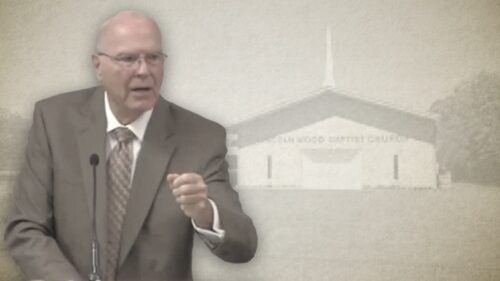-
Mercy, Peace And Love
Before the apostle enters fully into the purpose and substance of his epistle he first identifies those to whom he is writing. These are the Lord’s elect people whom Jude characterises as sanctified, preserved, and called. Jude prays to God for the enlargement of their blessings and a deepening of their experience of grace. The apostle’s desire is that the Lord will multiply mercy, peace and love to His people. By embracing all God’s church in his salutation Jude also includes us in this prayer for grace. More than words We must never take the introductory comments of the apostles’ epistles as words spoken merely to fill space at the start of their message. These introductions and greetings are important and precious prayers which express…
-
Saul Is Crowned King
-
Sanctified By God
FOR A COMPLETE ORDER OF WORSHIP, INCLUDING BIBLE READING, HYMNS AND SERMON...
-
Sanctified By God
The epistle of Jude is short, sweet and concentrated. There are many beautiful phrases and powerful images contained in this message delivered to the church of Jesus Christ under the apostle’s designation ‘the common salvation’. We shall dwell on some of these in the coming weeks. Jude, or Judas, was one of the Lord’s twelve disciples. He was, it seems, also called Lebbaeus, whose surname was Thaddaeus. He is distinguished from Judas Iscariot who betrayed the Lord by his relationship to James, son of Alphaeus (Matthew 10:3; Mark 3:18, Acts 1:13). A good question The only incident recorded of this Jude in the gospels is in John 14:22 where during Christ’s address to His disciples after the last supper Jude put the question, ‘Lord, how…
-
Samuel Meets Saul
-
I Will Choose Their Delusions
FOR A COMPLETE ORDER OF WORSHIP, INCLUDING BIBLE READING, HYMNS AND SERMON...




